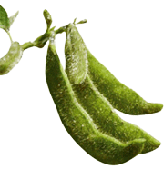The battle of Tekojoja, Paraguay
In Paraguay, currently less than 2% of the population owns 70% of the land. The expansion of GM soy is now one of the main causes of land conflict, and consequently one of the principal reasons for the increasing number of landless peasants. Caaguazu is one of the frontier areas of soy expansion. The town of Vaqueria can be considered as the front line of the peasant resistance against the agro-industry.
In the first week of September this year, a landmark court case was finally won. Campesin@s from the community of Tekojoja (Caaguazú) celebrated the victory that the Supreme Court had agreed that Brazilian soy producers had indeed illegally obtained land from INDERT (the land reform institution of Paraguay) that was meant for land reform. Tekojoja is home to 56 peasant families. Approximately 200 hectares are in dispute between peasants and soy producers attempting to illegally purchase the land for GM soy production. Campesin@s organised in the Movimiento Agrario y Popular occupied those lands. They have been violently evicted by the soy farmers twice; in December 2004, and again in June 2005. At the last occasion, two people were shot dead.
"Every day we witnessed 7 or 8 families leaving their land."
The conflict in Tekojoja began in 2003 when a group of people realised how fragmented the community had become. Soy had invaded the community and 1.200 ha out of the 5.000 ha of the Tekojoja were soy monocultures. Jorge Galeano described it as "a terrible period for us, every day we witnessed how 7 to 8 families were leaving their land. We calculated that 120 families had been expulsed because of the entrance of theBrazilian producers." INDERT made a shady contract granting 13 agricultural lots in the region to a group of Brazilian soy producers. In response, peasants began a recuperation
process in the 200 hectares in June 2003. Meanwhile, the Movimiento Agrario y Popular initiated legal action to recognise the land as property of Tekojoja. "When we made the first denounces in the Congress, we questioned the Executive Power as INDERT was selling land to persons not subject to Land Reform Program," declared Jorge Galeano.
On December 3rd 2004, judge Gladis Escobar ordered the eviction of the peasant settlement, which left 46 houses burned and 20 hectares of crops destroyed. The peasants reoccupied again their lands. The people of the MAP related "after the tractors had destroy our crops, they came with their big machines and started immediately to sow soy while smoke was still coming out from the ashes of our houses. Next day we came back with oxes and replanted all the fields over the prepared land. When the police came, we faced them with our tools and machetes, we were around 70 people and were ready to confront them. In the end they left."
The soy producers took action again. June 24th 2005, the attorney of Vaqueria headed another eviction of the land reoccupations, despite the fact that no decision had been taken by the Supreme Court on the case of the illegal sale of derecheras in the region. This time, soy farmers aided by heavily armed men evicted 56 families, and eventually shot Angel Cristaldo (20 years old) and Leoncio Torres (46 years old), without any provocation from their side. The killer was able to get away during his period of ´house arrest´ and has never been put on trial. Four hundred people including 223 children, were victims of the eviction.
The legal battle won is a major step, although too late for many families that have already been forced to move away from the community. The Movimiento Agrario y Popular has now formed itself as a local political party, in order to have more abilities to defend the rights of its members. After the elections had been postponed for a week due to fraud by their opponents (who knew full well that the MAP could not afford to help their supporters travel to Vaqueria a second time). Also, soy farmers have been reported to be handing out food and to offer people money to temporarily give away their ID cards, so they could not vote. The elections were finally held on Sunday 26 November, and despite everything the MAP obtained 2 of the 9 seats in the local council.
Contact:
ASEED Europe, An Maeyens, an@aseed.net
BASEIS Tomas Palau, tpalau@baseis.org.py



